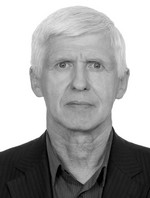Operational planning to improve training process efficiency in mass sports
Фотографии:
ˑ:
Fizicheskaya kultura: vospitanie, obrazovanie, trenirovka №1-2017, pp.23-25
UDC 796.015.15
Associate Professor, PhD V.P. Kopaev1
Postgraduate T.A. Obletsova1
1Velikie Luki State Academy of Physical Culture and Sports, Velikie Luki
Objective of the study was to obtain theoretical and practical data on the operational planning practices in mass sports and factors of influence on the planning processes, with the questioning surveys being applied as the main study method. The study toolkit was designed with due consideration for the modern sociological and educational contexts of a professional coaching process. The questioning surveys were complemented by direct interviews of the respondents. Subject to the survey were 300 coaches serving at the CYSS, CYORSS, sport clubs, general education schools, vocational schools, colleges and universities in the Pskov, Leningrad, Moscow, Tver, Nizhny Novgorod, Kaliningrad and Smolensk Provinces and Saint Petersburg city.
The study demonstrated the role of the operational planning practices being underestimated by the mass sport training process designers. Only 32.3% of the coaches polled were found to apply the training session planning scripts; 22.7% reported never doing that; and 45.0% reported using the scripts occasionally. The coaches’ attitudes to this important planning document were found independent of the coach’s category, background and practical experience. The study data and analyses have demonstrated the need in the relevant policies and management decisions to improve the existing training process planning practices.
Keywords: mass sports, training process, operational planning, training process management.
References
- Isaev A.A. Sportivnaya politika Rossii [Sport policy of Russia]. Moscow: Sovetskiy sport publ., 2002, 512 p.
- Kopaev V.P. Urochnoe planirovanie – svyazuyushchee zveno pedagogicheskoy nauki i praktiki [Lesson planning - link of pedagogical science and practice]. Mezhdunar. nauch.-prakt. kongress «Natsionalnye programmy formirovaniya zdorovogo obraza zhizni», T. 4. Mat. Vseros. konf. «Teoriya i metodika fizicheskoy kultury i sporta: nasledie osnovopolozhnikov i perspektivy razvitiya», posvyashchennaya 90-letiyu so dnya rozhdeniya zasluzhennogo deyatelya nauki RF L.P. Matveyeva [Intern. res.-pract. congress "National programs of healthy lifestyle". Vol. 1, Proc. conf. "Theory and methods of physical culture and sports heritage of founders and development prospects"] / Ministry of Sport of the Russian Federation, Moscow Department of Education, RSUPCSY (GTSOLIFK)». Moscow, 2014, pp. 67-69.
- Kravchenko A.I. Metodologiya i metody sotsiologicheskikh issledovaniy. Uchebnik dlya bakalavrov [Methodology and methods of sociological research. Textbook for undergraduates]. Moscow: Yurayt publ., 2014, 828 p.
- Matveyev L.P. Teoriya i metodika fizicheskoy kultury. 3-e izd., pererab. i dop. [Theory and methods of physical education. 3rd ed., Rev. and ext.]. Moscow: Fizkultura i sport, SportAkademPress publ., 2008, 544 p.
- Matveyev L.P. Obshchaya teoriya sporta i ee prikladnye aspekty. Uchebnik dlya vuzov fizicheskoy kultury. 5-e izd., ispr. i dop. [General sport theory and its applications. Textbook for physical culture universities. 5th ed., rev. and ext]. Moscow: Sovetskiy sport publ., 2010, 340 p.
- Strategiya razvitiya fizicheskoy kultury i sporta na period do 2020 goda [Strategy of development of physical culture and sport for the period until 2020]. Available at: http://www.sportspravka.com/main.mhtml?Part=356&PubID=4981.



 Журнал "THEORY AND PRACTICE
Журнал "THEORY AND PRACTICE